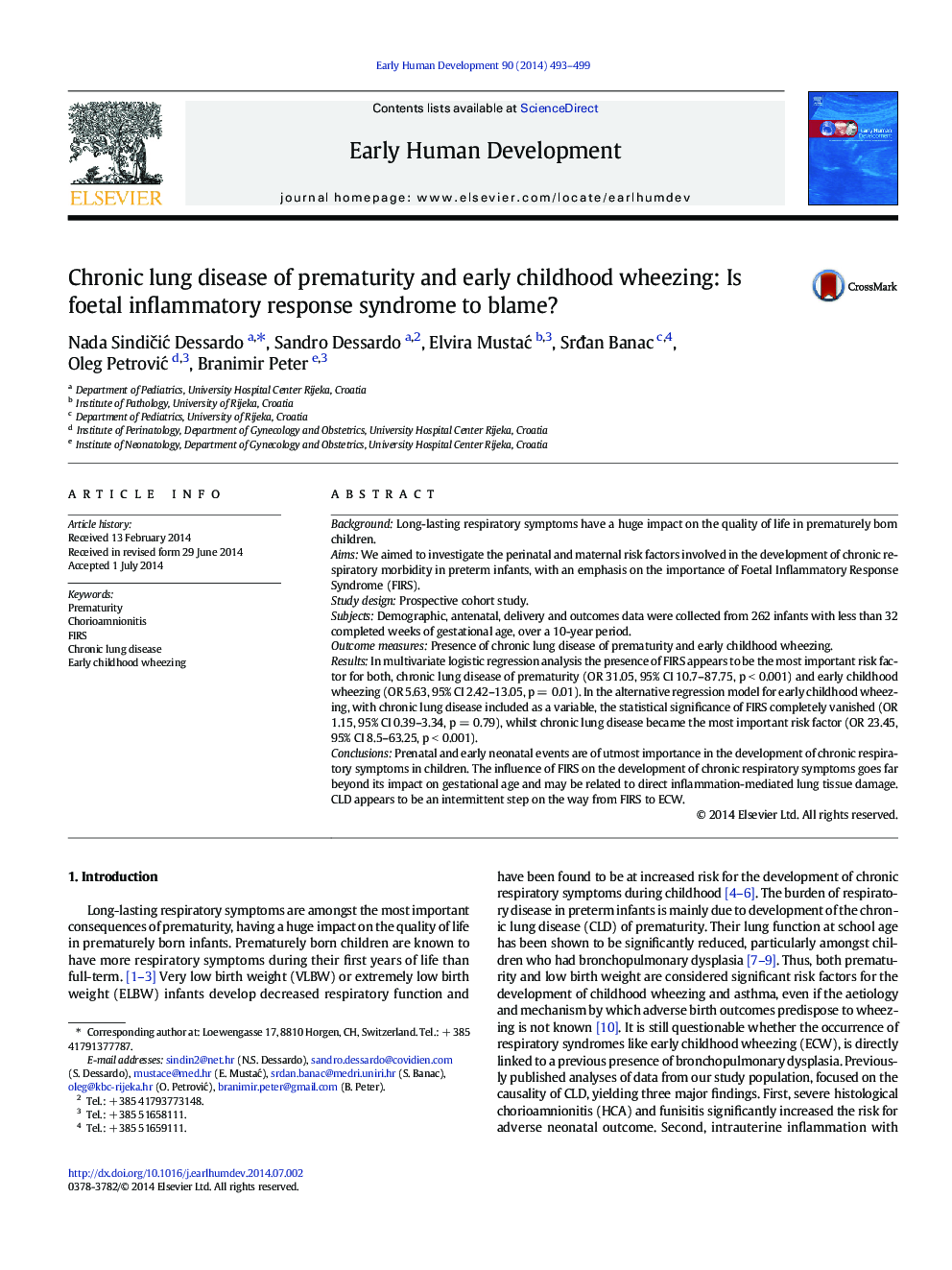| Article ID | Journal | Published Year | Pages | File Type |
|---|---|---|---|---|
| 3916513 | Early Human Development | 2014 | 7 Pages |
BackgroundLong-lasting respiratory symptoms have a huge impact on the quality of life in prematurely born children.AimsWe aimed to investigate the perinatal and maternal risk factors involved in the development of chronic respiratory morbidity in preterm infants, with an emphasis on the importance of Foetal Inflammatory Response Syndrome (FIRS).Study designProspective cohort study.SubjectsDemographic, antenatal, delivery and outcomes data were collected from 262 infants with less than 32 completed weeks of gestational age, over a 10-year period.Outcome measuresPresence of chronic lung disease of prematurity and early childhood wheezing.ResultsIn multivariate logistic regression analysis the presence of FIRS appears to be the most important risk factor for both, chronic lung disease of prematurity (OR 31.05, 95% CI 10.7–87.75, p < 0.001) and early childhood wheezing (OR 5.63, 95% CI 2.42–13.05, p = 0.01). In the alternative regression model for early childhood wheezing, with chronic lung disease included as a variable, the statistical significance of FIRS completely vanished (OR 1.15, 95% CI 0.39–3.34, p = 0.79), whilst chronic lung disease became the most important risk factor (OR 23.45, 95% CI 8.5–63.25, p < 0.001).ConclusionsPrenatal and early neonatal events are of utmost importance in the development of chronic respiratory symptoms in children. The influence of FIRS on the development of chronic respiratory symptoms goes far beyond its impact on gestational age and may be related to direct inflammation-mediated lung tissue damage. CLD appears to be an intermittent step on the way from FIRS to ECW.
